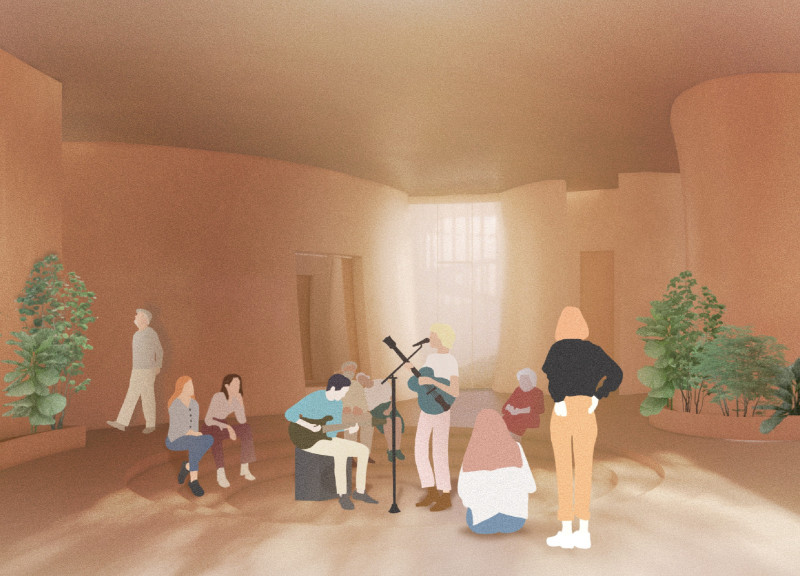5 key facts about this project
An essential aspect of the design is its versatility, which caters to multiple functions. Intended to serve as a mixed-use development, the project houses residential units, commercial spaces, and communal areas, creating a vibrant community hub. By incorporating elements such as green spaces and gathering areas, the architecture encourages social interaction and enhances the quality of life for its inhabitants. The layout promotes accessibility and circulation, ensuring that all spaces are interconnected, which enhances the functionality of the design.
The use of materials in the project underscores its modern architectural language. A careful selection of components such as reinforced concrete, glass, steel, and sustainable wood reflects a commitment to durability and environmental consciousness. The application of large glass facades allows for maximum natural light, creating an inviting atmosphere while reducing reliance on artificial lighting. Furthermore, the choice of sustainable wood elements not only contributes to the aesthetic warmth of the interior spaces but also aligns with the overall goal of minimizing the environmental footprint of the structure.
Unique design approaches are evident throughout the architecture, particularly in the building's exterior treatment. The façade is characterized by a harmonious interplay of solid forms and transparent surfaces, creating a dialogue between the inside and outside. This balance fosters a connection to the environment, encouraging occupants to engage with their surroundings. Moreover, the project showcases innovative roofing solutions that incorporate green terraces, further supporting biodiversity and improving air quality in the urban landscape.
The incorporation of smart architecture elements is another noteworthy feature of the design. Through the implementation of energy-efficient systems and the use of renewable energy sources, the project aims to reduce its overall energy consumption. Additionally, integrated technologies enhance the living experience, with smart home features that provide seamless control over lighting, heating, and security.
Providing spaces for art and culture, the project understands the importance of community engagement. Design elements include exhibition areas and flexible performance spaces that serve as platforms for local artists and events. This focus on cultural inclusivity contributes to a diverse community atmosphere, promoting creativity and connection among residents.
In summary, this architectural project embodies a well-rounded approach to modern design, prioritizing a blend of function, sustainability, and community enhancement. Its thoughtful use of materials and innovative design strategies not only respect the environment but also cater to the needs of the users, fostering a sense of belonging. The project exemplifies the potential of architecture to create meaningful spaces within urban contexts. For a deeper understanding of the project's nuances, including architectural plans, architectural sections, and architectural developments, exploring the complete project presentation is highly encouraged.























